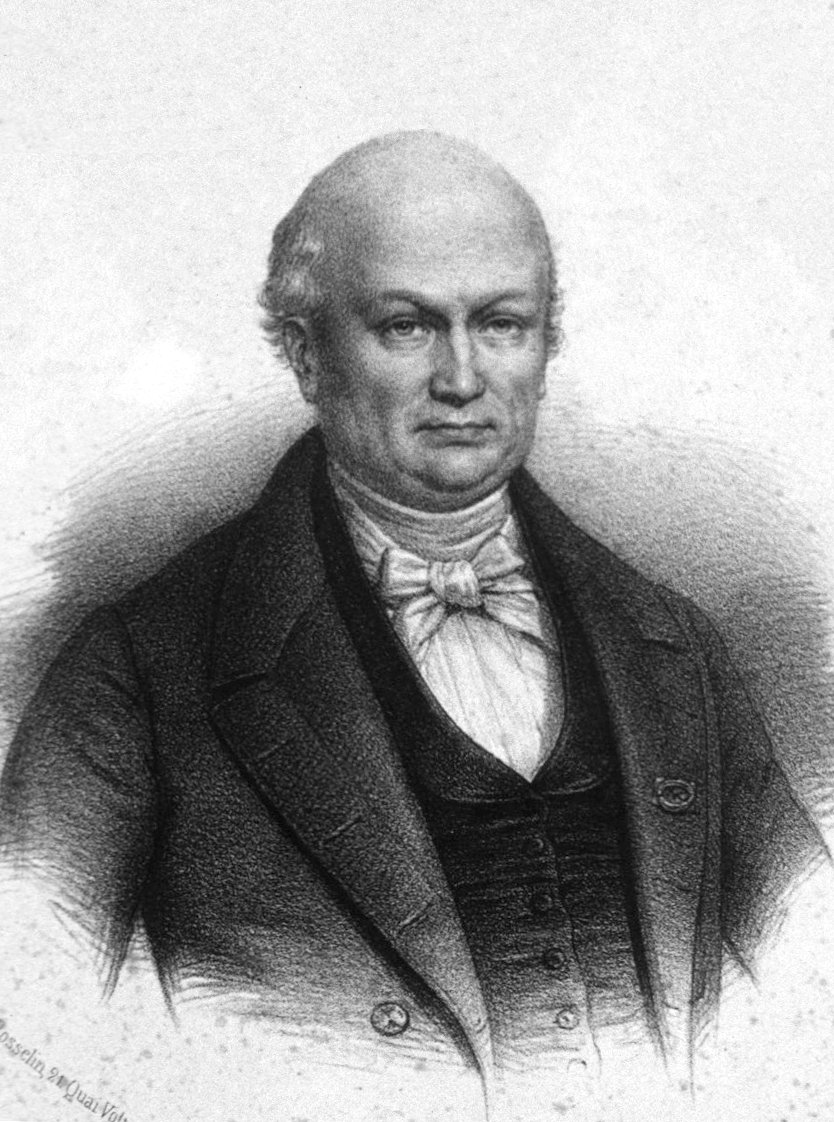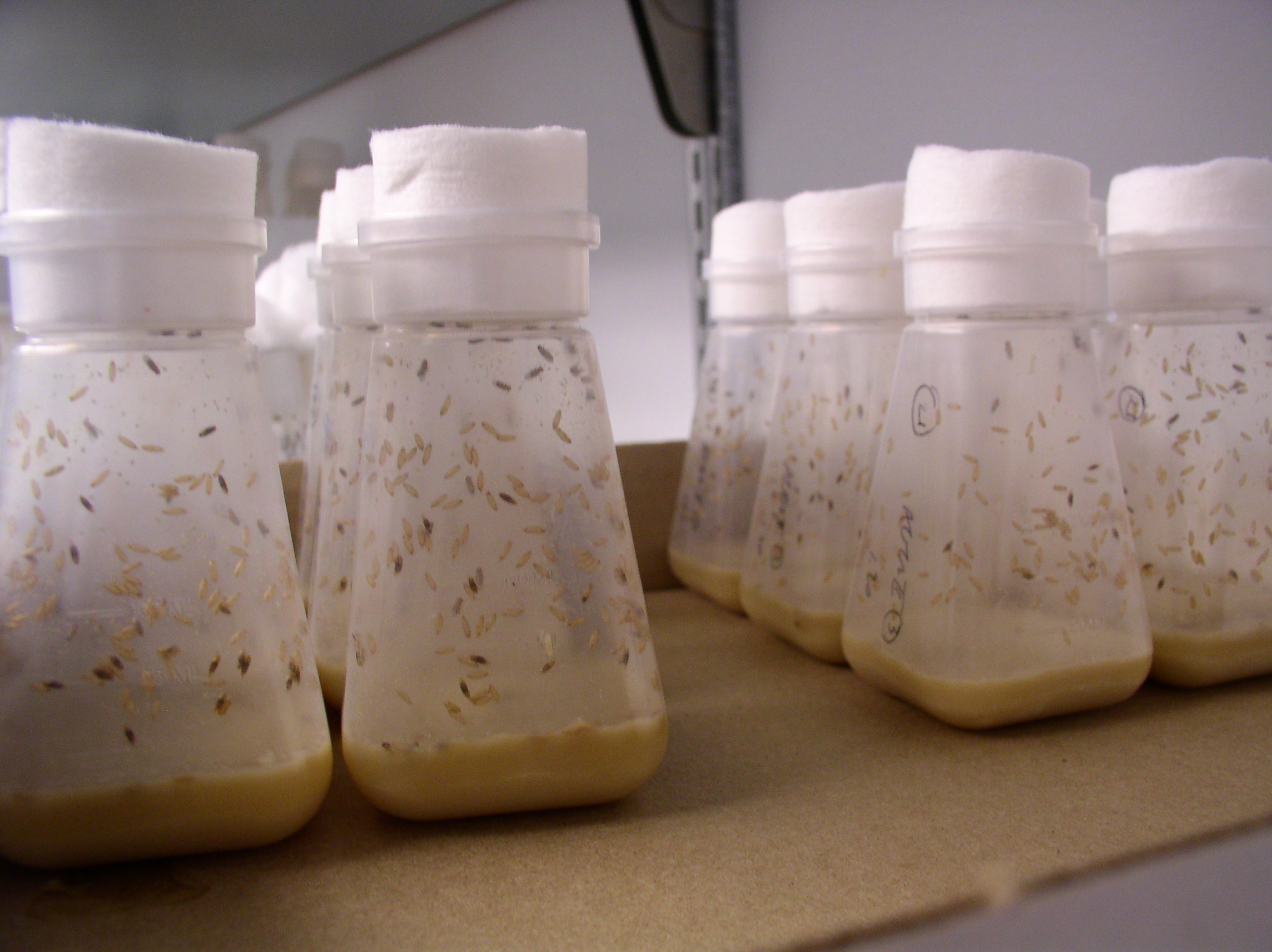|
Saltationism
In biology, saltation () is a sudden and large mutational change from one generation to the next, potentially causing single-step speciation. This was historically offered as an alternative to Darwinism. Some forms of mutationism were effectively saltationist, implying large discontinuous jumps. Speciation, such as by polyploidy in plants, can sometimes be achieved in a single and in evolutionary terms sudden step. Evidence exists for various forms of saltation in a variety of organisms. History Prior to Charles Darwin most evolutionary scientists had been saltationists. Jean-Baptiste Lamarck was a gradualist but similar to other scientists of the period had written that saltational evolution was possible. Étienne Geoffroy Saint-Hilaire endorsed a theory of saltational evolution that "monstrosities could become the founding fathers (or mothers) of new species by instantaneous transition from one form to the next." Geoffroy wrote that environmental pressures could produce sudd ... [...More Info...] [...Related Items...] OR: [Wikipedia] [Google] [Baidu] |
Mutationism
Mutationism is one of several alternatives to evolution by natural selection that have existed both before and after the publication of Charles Darwin's 1859 book ''On the Origin of Species''. In the theory, mutation was the source of novelty, creating new forms and new species, potentially instantaneously, in sudden jumps. This was envisaged as driving evolution, which was thought to be limited by the supply of mutations. Before Darwin, biologists commonly believed in saltationism, the possibility of large evolutionary jumps, including immediate speciation. For example, in 1822 Étienne Geoffroy Saint-Hilaire argued that species could be formed by sudden transformations, or what would later be called macromutation. Darwin opposed saltation, insisting on gradualism in evolution as geology's uniformitarianism. In 1864, Albert von Kölliker revived Geoffroy's theory. In 1901 the geneticist Hugo de Vries gave the name "mutation" to seemingly new forms that suddenly arose in his exp ... [...More Info...] [...Related Items...] OR: [Wikipedia] [Google] [Baidu] |
Hugo De Vries
Hugo Marie de Vries (; 16 February 1848 – 21 May 1935) was a Dutch botanist and one of the first geneticists. He is known chiefly for suggesting the concept of genes, rediscovering the laws of heredity in the 1890s while apparently unaware of Gregor Mendel's work, for introducing the term "mutation", and for developing a mutation theory of evolution. Early life De Vries was born in 1848, the eldest son of Gerrit de Vries (1818–1900), a lawyer and deacon in the Mennonite congregation in Haarlem and later Prime Minister of the Netherlands from 1872 until 1874, and Maria Everardina Reuvens (1823–1914), daughter of a professor in archaeology at Leiden University. His father became a member of the Dutch Council of State in 1862 and moved his family over to The Hague. From an early age Hugo showed much interest in botany, winning several prizes for his herbariums while attending gymnasium in Haarlem and The Hague. In 1866 he enrolled at the Leiden University to major in bot ... [...More Info...] [...Related Items...] OR: [Wikipedia] [Google] [Baidu] |
Modern Synthesis (20th Century)
The modern synthesis was the early 20th-century synthesis of Charles Darwin's theory of evolution and Gregor Mendel's ideas on Mendelian inheritance, heredity into a joint mathematical framework. Julian Huxley coined the term in his 1942 book, ''Evolution: The Modern Synthesis''. The synthesis combined the ideas of natural selection, Mendelian inheritance, Mendelian genetics, and population genetics. It also related the broad-scale macroevolution seen by paleontology, palaeontologists to the small-scale microevolution of local population, populations. The synthesis was defined differently by its founders, with Ernst Mayr in 1959, G. Ledyard Stebbins in 1966, and Theodosius Dobzhansky in 1974 offering differing basic postulates, though they all include natural selection, working on heritable variation supplied by mutation. Other major figures in the synthesis included E. B. Ford, Bernhard Rensch, Ivan Schmalhausen, and George Gaylord Simpson. An early event in the modern synthesi ... [...More Info...] [...Related Items...] OR: [Wikipedia] [Google] [Baidu] |
Alternative To Darwinism
Alternatives to Darwinian evolution have been proposed by scholars investigating biology to explain signs of evolution and the relatedness of different groups of living things. The alternatives in question do not deny that evolutionary changes over time are the origin of the diversity of life, nor that the organisms alive today share a common ancestor from the distant past (or ancestors, in some proposals); rather, they propose alternative mechanisms of evolutionary change over time, arguing against mutations acted on by natural selection as the most important driver of evolutionary change. This distinguishes them from certain other kinds of arguments that deny that large-scale evolution of any sort has taken place, as in some forms of creationism, which do not propose alternative mechanisms of evolutionary change but instead deny that evolutionary change has taken place at all. Not all forms of creationism deny that evolutionary change takes place; notably, proponents of theisti ... [...More Info...] [...Related Items...] OR: [Wikipedia] [Google] [Baidu] |
William Bateson
William Bateson (8 August 1861 – 8 February 1926) was an English biologist who was the first person to use the term genetics to describe the study of heredity, and the chief populariser of the ideas of Gregor Mendel following their rediscovery in 1900 by Hugo de Vries and Carl Correns. His 1894 book ''Materials for the Study of Variation'' was one of the earliest formulations of the new approach to genetics. Early life and education Bateson was born 1861 in Whitby on the Yorkshire coast, the son of William Henry Bateson, Master of St John's College, Cambridge, and Anna Bateson, Anna Bateson (née Aikin), who was on the first governing body of Newnham College, Cambridge. He was educated at Rugby School and at St John's College, where he graduated BA in 1883 with a first in natural sciences. Taking up embryology, he went to the United States to investigate the development of ''Balanoglossus'', a worm-like hemichordate which led to his interest in vertebrate origins. In 1883 ... [...More Info...] [...Related Items...] OR: [Wikipedia] [Google] [Baidu] |
On The Origin Of Species
''On the Origin of Species'' (or, more completely, ''On the Origin of Species by Means of Natural Selection, or the Preservation of Favoured Races in the Struggle for Life'')The book's full original title was ''On the Origin of Species by Means of Natural Selection, or the Preservation of Favoured Races in the Struggle for Life''. In the 1872 sixth edition, "On" was omitted, so the full title is ''The origin of species by means of natural selection, or the preservation of favoured races in the struggle for life.'' This edition is usually known as ''The Origin of Species.'' The 6th is Darwin's final edition; there were minor modifications in the text of certain subsequent issues. See Freeman, R. B. In Van Wyhe, John, ed. ''Darwin Online: On the Origin of Species'', 2002. is a work of scientific literature by Charles Darwin that is considered to be the foundation of evolutionary biology. It was published on 24 November 1859. Darwin's book introduced the scientific theory that ... [...More Info...] [...Related Items...] OR: [Wikipedia] [Google] [Baidu] |
Albert Von Kölliker
Albert von Kölliker (born Rudolf Albert Kölliker'';'' 6 July 1817 – 2 November 1905) was a Swiss anatomist, physiologist, and histologist. Biography Albert Kölliker was born in Zürich, Switzerland. His early education was carried on in Zürich, and he entered the university there in 1836. After two years, however, he moved to the University of Bonn, and later to that of Berlin, becoming a pupil of noted physiologists Johannes Peter Müller and of Friedrich Gustav Jakob Henle. He graduated in philosophy at Zürich in 1841, and in medicine at Heidelberg in 1842 The first academic post which he held was that of prosector of anatomy under Henle, but his tenure of this office was briefin 1844 he returned to University of Zurich to occupy a chair as professor extraordinary of physiology and comparative anatomy. His stay here was also brief; in 1847 the University of Würzburg, attracted by his rising fame, offered him the post of professor of physiology and of microscopical an ... [...More Info...] [...Related Items...] OR: [Wikipedia] [Google] [Baidu] |
Evolution
Evolution is the change in the heritable Phenotypic trait, characteristics of biological populations over successive generations. It occurs when evolutionary processes such as natural selection and genetic drift act on genetic variation, resulting in certain characteristics becoming more or less common within a population over successive generations. The process of evolution has given rise to biodiversity at every level of biological organisation. The scientific theory of evolution by natural selection was conceived independently by two British naturalists, Charles Darwin and Alfred Russel Wallace, in the mid-19th century as an explanation for why organisms are adapted to their physical and biological environments. The theory was first set out in detail in Darwin's book ''On the Origin of Species''. Evolution by natural selection is established by observable facts about living organisms: (1) more offspring are often produced than can possibly survive; (2) phenotypic variatio ... [...More Info...] [...Related Items...] OR: [Wikipedia] [Google] [Baidu] |
Thomas Hunt Morgan
Thomas Hunt Morgan (September 25, 1866 – December 4, 1945) was an Americans, American evolutionary biologist, geneticist, Embryology, embryologist, and science author who won the Nobel Prize in Physiology or Medicine in 1933 for discoveries elucidating the role that the chromosome plays in heredity. Morgan received his Ph.D. from Johns Hopkins University in zoology in 1890 and researched embryology during his tenure at Bryn Mawr College, Bryn Mawr. Following the rediscovery of Mendelian inheritance in 1900, Morgan began to study the genetic characteristics of the fruit fly ''Drosophila melanogaster''. In his famous Fly Room at Columbia University's Schermerhorn Hall, Morgan demonstrated that genes are carried on chromosomes and are the mechanical basis of heredity. These discoveries formed the basis of the modern science of genetics. During his distinguished career, Morgan wrote List of books by Thomas Hunt Morgan, 22 books and 370 scientific papers. As a result of his work, ... [...More Info...] [...Related Items...] OR: [Wikipedia] [Google] [Baidu] |
Biology
Biology is the scientific study of life and living organisms. It is a broad natural science that encompasses a wide range of fields and unifying principles that explain the structure, function, growth, History of life, origin, evolution, and distribution of life. Central to biology are five fundamental themes: the cell (biology), cell as the basic unit of life, genes and heredity as the basis of inheritance, evolution as the driver of biological diversity, energy transformation for sustaining life processes, and the maintenance of internal stability (homeostasis). Biology examines life across multiple biological organisation, levels of organization, from molecules and cells to organisms, populations, and ecosystems. Subdisciplines include molecular biology, physiology, ecology, evolutionary biology, developmental biology, and systematics, among others. Each of these fields applies a range of methods to investigate biological phenomena, including scientific method, observation, ... [...More Info...] [...Related Items...] OR: [Wikipedia] [Google] [Baidu] |
Mimicry
In evolutionary biology, mimicry is an evolved resemblance between an organism and another object, often an organism of another species. Mimicry may evolve between different species, or between individuals of the same species. In the simplest case, as in Batesian mimicry, a mimic resembles a model, so as to deceive a dupe, all three being of different species. A Batesian mimic, such as a hoverfly, is harmless, while its model, such as a wasp, is harmful, and is avoided by the dupe, such as an insect-eating bird. Birds hunt by sight, so the mimicry in that case is visual, but in other cases mimicry may make use of any of the senses. Most types of mimicry, including Batesian, are deceptive, as the mimics are not harmful, but Müllerian mimicry, where different harmful species resemble each other, is Honest signal, honest, as when species of wasps and of bees all have genuinely Aposematism, aposematic warning coloration. More complex types may be bipolar, involving only two speci ... [...More Info...] [...Related Items...] OR: [Wikipedia] [Google] [Baidu] |






